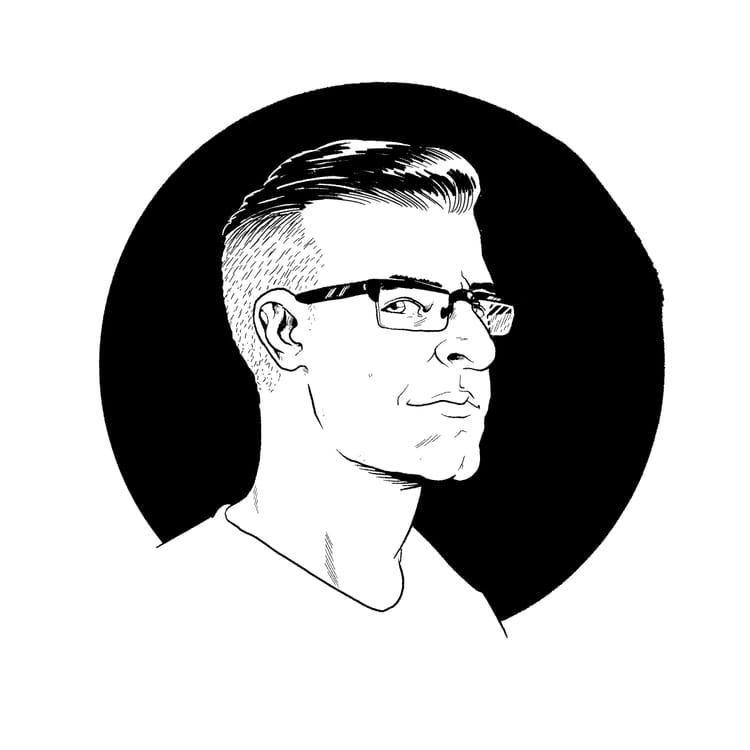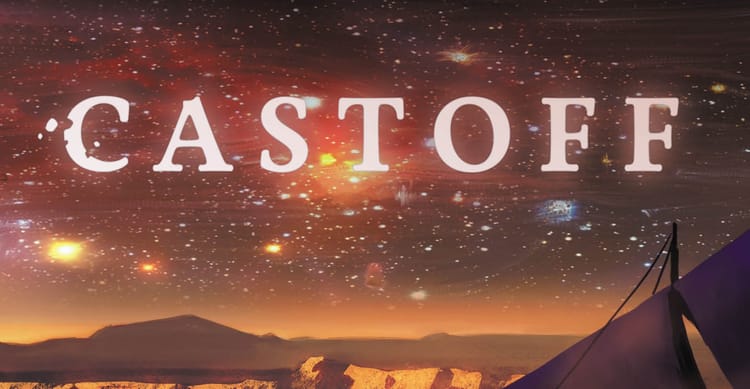Personal Canons: On Endings
I’ve spent the past four months immersed in the notion of canon. Canon as mutable, canon as permanent, canon as universal, canon as personal. I’ve gotten to read hundreds of people’s perspectives on their own canon — the books that shaped them as readers, writers, and humans.
I was absolutely staggered by the response to my open call for submissions. Many people published essays of their own. (One of my favorites belongs to Meg Elison, who wrote powerfully about The Neverending Story. DongWon Song also wrote beautifully about the notion of canon as “outdated, colonialist, racist, sexist, and anti-queer.”). Multiple anonymous donors sent generous funds to help me purchase a higher volume of essays than I would have been able to on my own. Several of my brilliant colleagues got in touch with contributions to the series, waiving payment so I could bring in more voices from among submissions.
And oh, wow, the submissions. They were an absolute embarrassment of riches. I had the honor of reading an incredible range of pieces from writers around the world. There were reflections on gender, sexuality, disability, nationality, race, ethnicity, upbringing, religion, and more. Some of the pieces were sharp and funny; some of them were meditative and nuanced; some of them grappled hard with tarnished legacies and shifting identities.
All of them were powerful love letters to the stories that made us who we are today.
If you liked this series, please consider saying so on social media! Share the pieces you loved, read the works referenced, tell the authors you connected with their work. They are brilliant, and they deserve to have their words read widely.
Here’s a full listing, in chronological order, of the essays I published for the Personal Canons series.
Dealing With Dragons — Sarah Gailey
Sometimes, the hard, boring, hurtful questions are important. Sometimes they can move us to interrogate our assumptions, to examine the rules we take for granted. Sometimes asking them can help us grow.
The Thief of Always — Sarah Gailey
I reread the first page of The Thief of Always every time I am about to start writing a new project as a reminder that this is what I’m reaching for: an opening line that digs itself deep under the skin of the reader and stays there for life.
The Books That Hate Us — Alex Acks
I greedily read anything that had pages and something like a plot, but the books I read that should have been the foundation of my personal canon despised me.
There Is No Universal Canon — Aidan Moher
We are our experiences, and no list on the internet can change that. No monolithic voice can tell us what we should read, or dictate prerequisites for fandom.
Abhorsen — Sarah Gailey
I’m such a sucker for duality.
Lesley Nneka Arimah — Innocent Chizaram Ilo
Lesley Nneka Arimah occupies a very important space for younger Nigerian/African speculative fiction writers like myself, as she continues to inspire us to be audacious in creating new speculative worlds that we can truly call our own.
The Bartimaeus Trilogy — Noah Johnson
The fantasy I grew up with was made for me. I had no end of troubled young men to identify with, a glut of heteronormative angst and blinding whiteness dutifully molded into the same face a thousand times over.
Mama Day — Sarah Gailey
This is not a book that is concerned with my sensibilities, or yours, or anyone’s. Mama Day exists on its own terms.
Warren Ellis — Alasdair Stuart
An audience doesn’t owe a creator a damn thing. Not shelf space. Not loyalty. Not forgiveness. Canon isn’t sacrosanct; it can’t be sacrosanct if you want to do anything other than ceaselessly trudge around the orbit of the same, ever-more-dusty sacred tomes. It’s a place to visit, not to live.
The Blue Sword — AnaMaria Curtis
There’s a line in the second half of Robin McKinley’s The Blue Sword that says, “it is not an enviable position, being a bridge.” It’s not the best sentence in this winding, gorgeous, semicolon-stuffed book, but it is the line that’s most directly anchored in my heart.
Harry Potter — Sarah Gailey
Present-me is clenched up like a clamshell at the thought of writing this piece, at the thought of the discourse it’s wrapped up in and responding to, at the thought of the conversations I’ve missed and the conversations I’ve ducked out of.
Young Wizards — Erin Maier
The Universe will die, is dying, but there’s no need to make it get there faster. We should treat the people and the world around us with kindness regardless, love them fiercely and deeply, without shame or fear. We should do our best to leave the Universe better than we found it.
Momo — Héctor González
Michael Ende’s book touched on hustle culture and commercialism in ways I didn’t not expect. How internalized capitalism, a term I only recently learnt, makes you feel guilty for resting, and equates happiness and self-worth to productivity levels, while neglecting your own health and well-being.
Nnedi Okorafor — Amy Tenbrink
Who Fears Death changed me. It changed my life. If you’ve ever been to Sirens, I hope it’s changed yours.
Dinotopia — Filip Hajdar Drnovšek Zorko
Here is a world in which the arrival of humans did not results in the genocide of the original inhabitants. Here is the lesson that someone accustomed to the privilege of European imperialism cannot live in an equitable society without feeling himself oppressed. Growing up in Australia, the contrast — whether I noted it consciously or not — was stark.
Wayside School — Sarah Gailey
I grew up in a golden age of slime.
Ender’s Game — Ty Schalter
The moral arc of the universe doesn't bend toward justice by default. It requires constant, collective work with hammer and tongs. It requires pain, exhaustion, sacrifice by those who are able on behalf of those who aren't.
Jules Verne — Anna Martino
Whenever someone talks about “The Great Canon of SFF”, I notice more of what’s not being said than what is. I’m Brazilian: my canon isn’t your canon.
The Three Fat Men — Marina Berlin
I’m sure some people would call the book “socialist propaganda”. That’s part of the experience of being a millennial who was born in the USSR: most of our childhood stories were about the animals of the forest organizing to depose the lazy, selfish lion who ruled them.
Dragon Ball — John Wiswell
Is this where I confess to piracy? Fans work faster than capitalism.
Dragon Rider — Elisabeth Moore
The very fact that the personal canon is multifaceted and multi-genre is key to the canon. And so, I want to add a key cornerstone of my canon: the audiobook for Cornelia Funke’s The Dragon Rider, Part 1. …Yes. Only Part 1.
All the Birds in the Sky — Sarah Gailey
This book fundamentally and permanently changed my approach to storytelling.
Lloyd Alexander — Suzanne Walker
I loved Prydain, I wanted to live in Prydain, but I missed seeing myself. I missed reading about girl heroes.
The Last Unicorn — David Minerva Clover
In the 1982 animated version of The Last Unicorn, the harpy has tits, which is almost as cool as the entire soundtrack being written by the band America.
Drinking from a Poisoned Well — DongWon Song
The well is poisoned. But that water is all we have. We use it to nurture our crops. To grow ourselves. But the thing about tainted water is that it can be cleaned.
Thank you again to the incredible contributors, donors, and readers who made this series happen. It has been amazing, coming on this journey with all of you.
If you haven’t already, I hope you’ll consider subscribing to this newsletter. In the meantime, as always: Care for yourself and the people around you. Believe that the world can be better than it is now. Never give up.
-Gailey






Member discussion